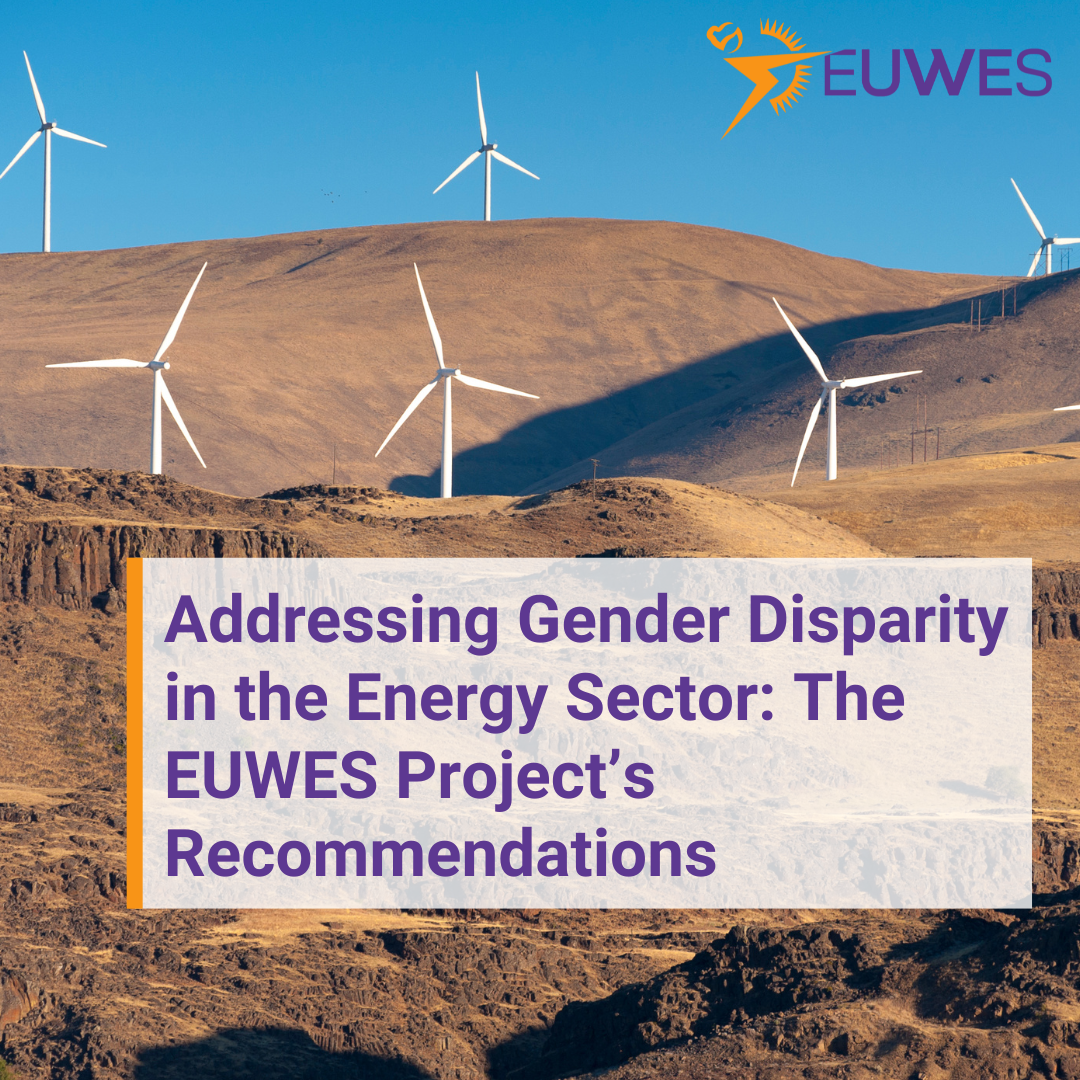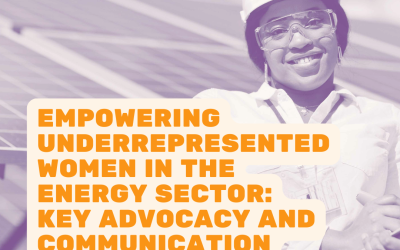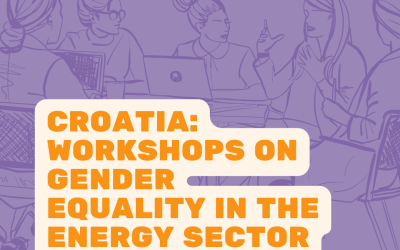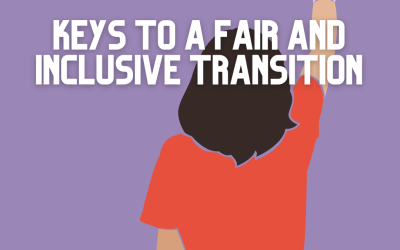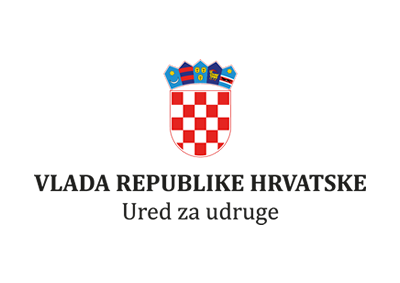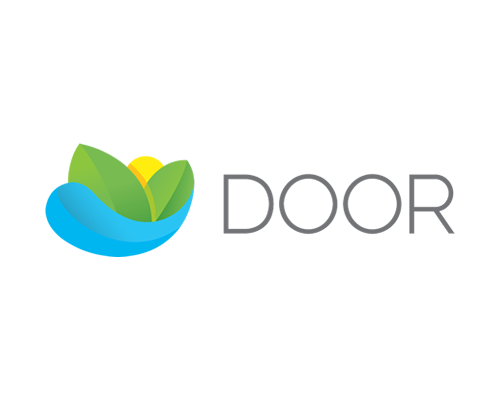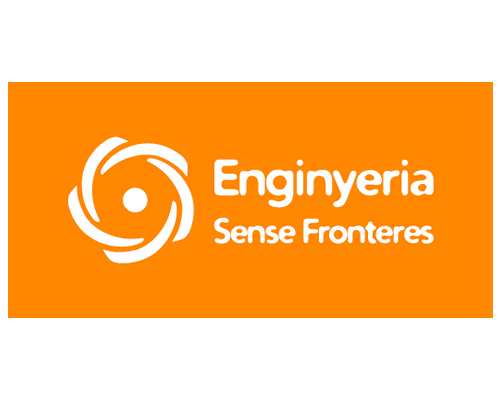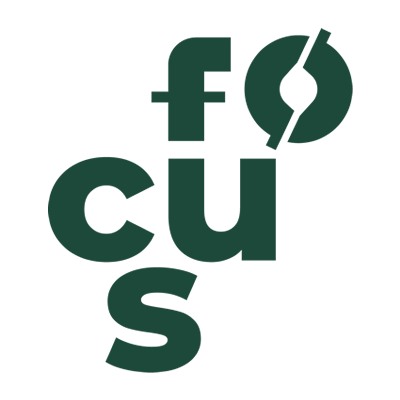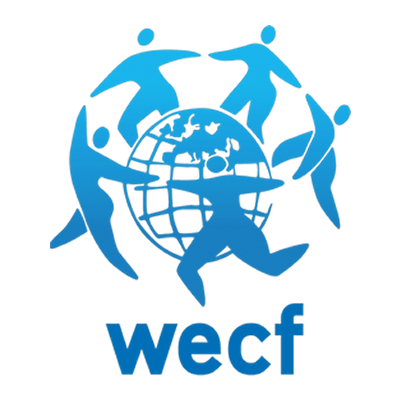The energy sector across Europe presents a significant gender disparity, with women still greatly underrepresented.
In the EU, the energy sector workforce is predominantly male, comprising 77.9%, while women represent only 22.1%. This gender gap extends to the renewable energy sector, where women are similarly in the vast minority. This disparity not only undermines the potential for diverse perspectives in energy decision-making but also perpetuates inequality. It is essential to acknowledge that the current situation is not due to a lack of personal effort from women, but rather systemic barriers that hinder their progress in the energy sector. The EU plays a significant role in advancing gender equality in the energy sector, particularly through policies and funding initiatives. EUWES project partners compiled recommendations for the EU on how to create a better systemic environment for gender equality in the energy sector, as well as how to best support energy companies and educational institutions to take progressive measures to tackle gender inequality.
Policy Recommendations
EU policies driving the green transition, such as Fit for 55 and RePOWER, should incorporate a feminist perspective to create more equitable energy systems that prioritize human well-being and the environment over profit. The EU should encourage member states to include gender mainstreaming in their National Energy and Climate Plans (NECPs) and Social Climate Plans to ensure that energy policies are equitable and address the diverse needs of all citizens. Additionally, the EU must address the feminization of energy poverty by implementing gender-sensitive policies that promote energy-efficient renovations, ensure affordable access to energy, and prohibit disconnections, with a particular focus on the unique needs of women in vulnerable situations.
Energy Companies Key to Boosting Female Workforce
Energy companies must conduct Gender Self-Assessments to identify strengths and weaknesses in their gender diversity. Following this, comprehensive Gender Equality Plans should be implemented to address these gaps, including initiatives to increase women’s leadership roles, mitigate recruitment biases, and foster a more inclusive workplace culture. Providing gender training and reskilling programs is essential for promoting diversity and inclusivity, covering topics such as unconscious bias, gender-just communication, and barriers faced by women in the energy sector. Reskilling programs are particularly important as the sector transitions to renewable energy, ensuring women have equal opportunities in this evolving landscape.
Educational Institutions Vital for Encouraging Women to Pursue STEM Fields
Increasing the participation of women in Science, Technology, Engineering, and Mathematics (STEM) disciplines is crucial. Despite modest improvements, women still represent a minority in these fields. Educational institutions must play a pivotal role by conducting gender equality assessments, adopting Gender Equality Plans, and offering gender-focused training for educators. These measures will create more inclusive environments that encourage women to pursue and succeed in STEM careers.
Establishing mentorship programs and increasing the visibility of successful women in the energy sector is another important aspect that can inspire and motivate female students. Educational institutions should also integrate gender perspectives into STEM curricula and encourage research on the gender-energy nexus. Programs like the Technical University Berlin’s “Gender Pro MINT” certificate exemplify how gender issues can be effectively integrated into STEM education.
Advocating for Systemic Change
To truly achieve gender equality in the energy sector, it is imperative to transform the systemic structures that perpetuate disparity. The EUWES project’s recommendations are a crucial step in this direction, advocating for gender-sensitive policies and inclusive practices within energy companies and educational institutions. In the following month, the EUWES project partners will carry out advocacy activities at the EU level, ensuring that these recommendations become integral to the EU’s official policies, fostering a more equitable and just energy sector for all.
